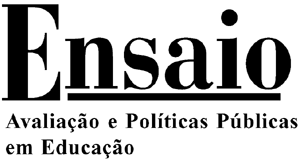Abstract
This article discusses the interruption of Teaching and learning activities at Brazilian federal universities at the time the Covid-19 pandemic broke out, as well as the extent to which the lack of access to the internet would prohibit remote resumption of those activities. Political-educational strategies for tackling the pandemic that are in line with WHO recommendations are addressed. Then the universities’ immediate responses to the necessary suspension of face-to-face activities are discussed. Finally, official data are reported measuring the size of the problem of internet access among higher education students. Given that 98% are connected, there is an urgent need to enable internet and digital literacy for 2% without access. However, there are no consistent justifications for prolonging the interruption of Teaching and learning activities. Emergency remote Education emerges as an immediate path in the midst of the pandemic, but it is blended learning methodologies that tend to consolidate in the post-pandemic world – which, sooner or later, will require new attitudes and strategies from Brazilian federal universities.
Higher Education; Access to the Internet; Blended Learning; Covid-19
